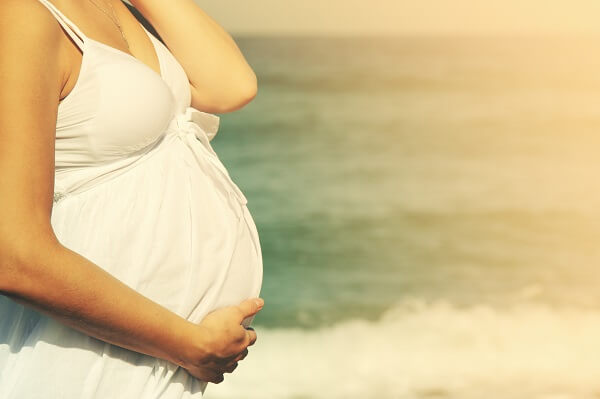Travel Advice for Pregnant Women
Going on holiday is an enjoyable experience that many people look forward to; however, when you’re pregnant rules and regulations can present nasty surprises if you haven’t done your research. There may be restrictions on when and where you can travel, as well as certain conditions applied to you.

Restrictions
Before you even book your holiday, you need to find out if there will be any restrictions imposed if you travel when pregnant. For example, some airlines will let you fly anywhere at any point in your pregnancy, whereas others have slightly stricter rules. Most airlines will allow you to fly up to 36 weeks (if you and the baby are healthy), however if you’re carrying multiple babies this is usually reduced to 32 weeks, and if you’ve had problems with previous pregnancies this could be reduced further. Similarly, cruise ships may stop pregnant women travelling at the later stages of pregnancy, particularly in the last couple of weeks.
Airlines may allow you to fly up to 36 weeks, but after 27 weeks they will usually require a letter from your doctor or midwife. This letter will have to state your due date and whether you are safe to fly, as well as highlight that the chance of you going into labour mid-flight is unlikely.
When it comes to travel insurance, you need to be aware that companies may have different rules about pregnancy and travel. Pregnancy is not an ‘illness’, it is a natural and wonderful experience for any woman, however travelling later in pregnancy can put you and your child at a greater risk of medical complications, therefore most insurers will limit cover for travel after a certain point (just like an airline). Furthermore, although you shouldn’t need to declare your pregnancy to your insurer, you will need to declare any issues linked to your pregnancy, for example if you have high blood pressure.
Personal Choice
It’s worth bearing in mind that your feelings on travelling may change as your pregnancy progresses. A trip that you planned when you were only eight weeks pregnant may not seem quite as appealing once you reach 28 weeks. As your bump grows larger, you may find some things are uncomfortable and the familiarity of home could seem like a nicer option. During the first few weeks of pregnancy, you may experience various unpleasant symptoms including nausea and sickness. This also tends to put some women off of travelling or embarking on long journeys.
During the earlier days of your pregnancy, most insurers and travel operators are more than happy to allow you to travel almost anywhere. If you’re planning a trip to a far-flung destination, however, you may have to consider inoculations, and some of these are not recommended or even suitable during pregnancy, so give this careful consideration before you travel. You will also need to consult a doctor to find out what is safe for you to take, for example anything from malaria medication to travel sickness tablets could be unsafe for pregnant women.
When you do book a trip anywhere, be sure to do lots of research and read through every detail of the policy to ensure that you are covered for everything you need. If anything changes between booking your trip and actually going on it, inform your insurer and holiday operator. Listen to your body throughout your pregnancy as this can often give you the best indications when it comes to making decisions about travelling.
For more information on quality pregnancy travel insurance, visit our dedicated pregnancy page or if you would like further help with travelling while pregnant, please read our complete pregnancy travel guide here.
Safe travels!


